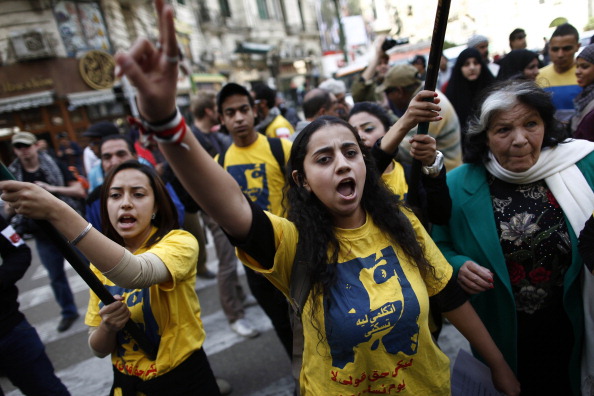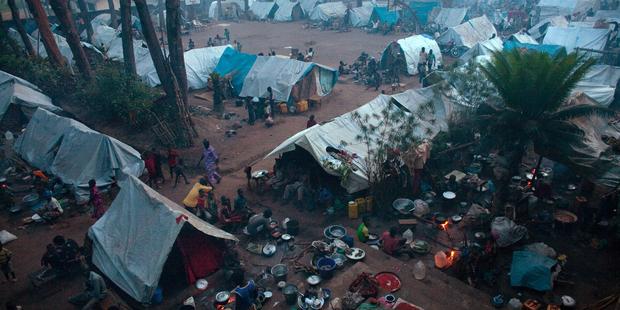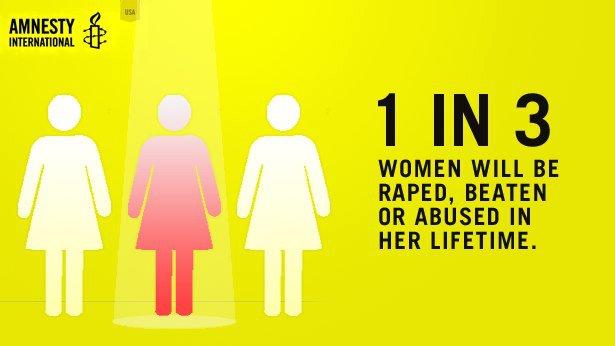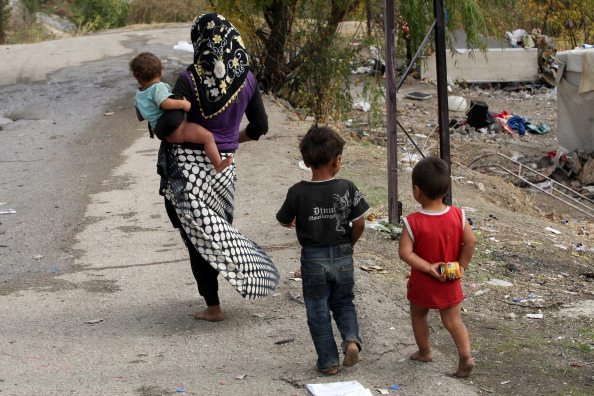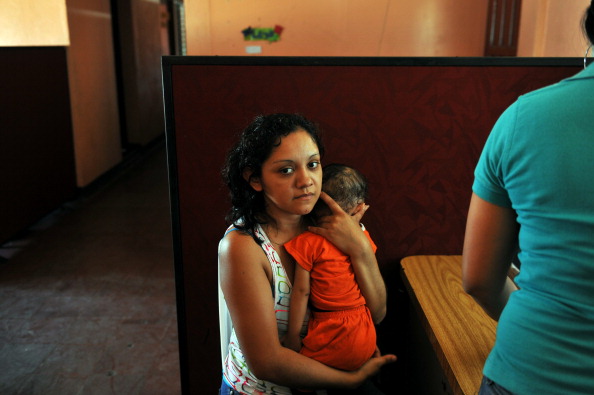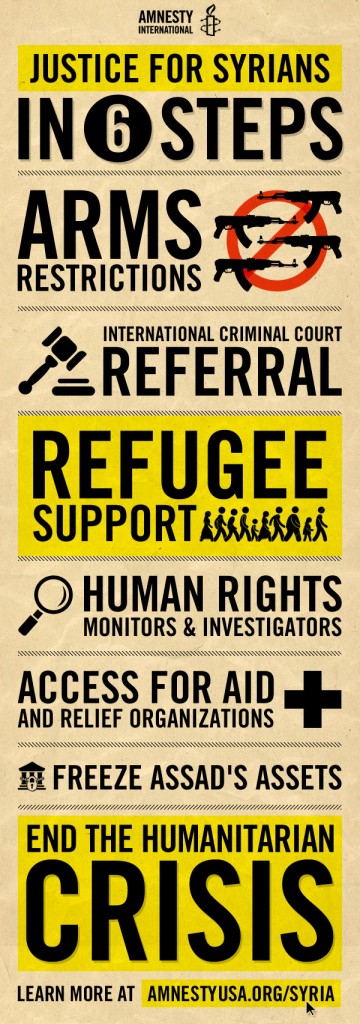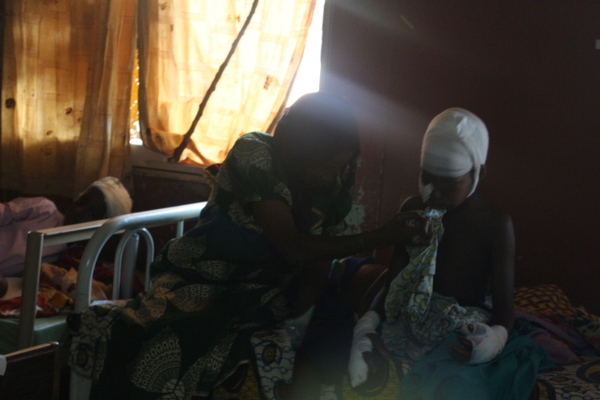
Amnesty International researchers spoke with a mother and her 4-year-old daughter who were the victims of a machete attack (Photo Credit: Susanna Flood/Amnesty International).
By Susanna Flood, Director of Media at Amnesty International
Her voice began to choke and then the tears began to flow down her face as she calmly and steadily recounted the long list of names of all the women and children killed in her village when the anti-balaka struck a week ago.
Sitting in a darkened hospital ward at the Hôpital Communautaire, she gracefully removed her headscarf and revealed the stitches laced across her scalp where the machete had struck. Alongside her was her four-year-old daughter with a matching wound on her head, also the victim of machete attacks.
